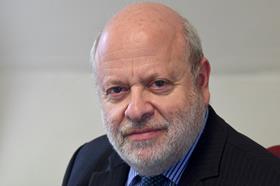It cannot be a coincidence that, on the same day at the end of last week, two reports from international organisations were published in which lawyers were denigrated as ‘professional enablers’. They did not mean it in a good way. They were not talking about enabling the rule of law and fundamental rights. They meant it as a slur, as in enabling criminal behaviour. Our reputation is going down right before our eyes. It did not start with those reports, and it will not end with them.

The first report came from a panel set up by the United Nations, its High Level Panel on International Financial Accountability, Transparency and Integrity for Achieving the 2030 Agenda, called the FACTI panel.
The 2030 Agenda for Sustainable Development contains 17 Sustainable Development Goals (SDGs) and 169 targets, and was adopted in 2015 by heads of state and government at a special UN summit. It is a commitment to eradicate poverty and achieve sustainable development by 2030 world-wide, ensuring that no one is left behind. Among its goals are ending hunger and ensuring gender equality.
But lawyers are among the bad groups standing in the way of this achievement. Read this from the chapter headed ‘Enablers’:
‘Very few types of illicit financial flows are conducted purely by criminals. Most of them are enabled by a variety of professionals, including lawyers … Lawyers and law firms often abuse their legal professional privilege, asserting that routine tasks, such as creating a corporation, that may be performed by non-lawyers are protected from disclosure on grounds of privilege.’
And the report’s remedy soon becomes apparent, too:
‘While many professions have codes of conduct and other standards for membership in professional bodies, these codes are divorced from the demands of sustainable finance and the public interest. Governments should not complain about the behaviour of these enablers if they have not taken responsibility for setting the standards for appropriate conduct.’
And so that is what the report proposes in recommendations 6A and 6B: that governments should set global standards for legal professionals.
The next report came from the OECD, called ‘Ending the Shell Game: cracking down on the professionals who enable tax and white collar crimes’.
Lo and behold, it uses the same phrase to describe us: professional enablers, and again not in a good way. Four of its five chapter headings have the words ‘professional enablers’ in them: first their role, and then identifying, disrupting and deterring them.
The OECD is more emphatic than the UN panel in stating that it is a small minority of lawyers who are enablers in this sense. It is also a little more cautious in the language of its recommendations.
So there is no call for a global code of conduct for lawyers, but just a call on governments to explore whether professional supervisory or regulatory bodies can be used to stop professional enablers from operating.
However, it goes further than the UN panel on professional privilege, and calls on governments to reflect on whether such privilege poses a barrier to successful investigation and prosecution of offences.
All this is bad news for lawyers everywhere. Who is standing up for us? That is what bars are for.
The International Bar Association issued a protest on the publication of the UN report, insisting that the strictures on self-regulation were wrong and that ‘an independent legal profession is a much-valued cornerstone of the rule of law’.
The IBA protests in its statement about how much it has collaborated with various international organisations to combat crime, include the UN and OECD. But the UN report is not kind to the IBA, saying damningly: ‘The International Bar Association has already issued a report indicating that legal professional privilege should not be used to shield wrongdoers’, as if the IBA is on its side and making it more difficult to defend the profession robustly. The IBA report it cites was one undertaken jointly with the OECD in 2019, and criticised by some bars at the time.
This is an urgent matter now. The phrase ‘professional enabler’ is being used too often these days against us. I have written repeatedly, for instance, about how it is used against lawyers in their role in contributing to climate damage as a result of lawyers who act for major carbon emitters. It is also heard in relation to lawyers who act for tyrannical governments in enabling them to carry out their schemes, no matter how much we say that lawyers should not be identified with their clients’ causes.
There is a danger that we are now near a tipping point, and as with one of former President Trump’s nicknames – Crooked Hilary, for instance – it will stick and define us. The Law Society and its international partners must act soon to counter the narrative.
Jonathan Goldsmith is Law Society Council member for EU matters and a former secretary general of the Council of Bars and Law Societies of Europe. All views expressed are personal and are not made in his capacity as a Law Society Council member, nor on behalf of the Law Society































5 Readers' comments